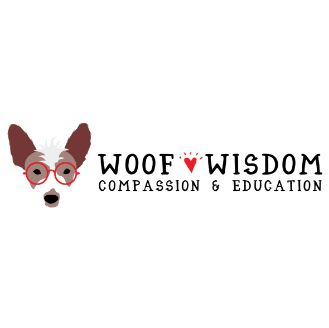Choosing Effective Dog Training Methods: A Science-Based Approach
- Kristine adams

- Aug 9, 2023
- 3 min read
Updated: Dec 1, 2023
If you've found your way to my blog, I feel pretty comfortable assuming you are interested in dogs and dog training. You may have been bouncing around in the wild world of the internet and found yourself suddenly questioning your sanity.
When it comes to dog training, there is so much information out there, and so much of it is conflicting information.
I think the most important thing that we can do as humans is make up our minds for ourselves. Education and accurate information are things I have always valued, and I hope you do too. So let's talk about some things when it comes to training.
The #1 thing I want you to remember and keep repeating to yourself is, "Dog training is an unregulated field. People can do and say anything they like to you and your dog and there is no liability or accountability for their actions." Scary stuff when you stop to think about it.
I'm a science person; this is where the education part really hits home for me. We know how behavior works; this is not a mystery; this is pretty solid science. Science is always working to discover, and discoveries are always made, but as far as how behavior works, there's not really a big revolutionary discovery happening here. In a lot of ways, it's straightforward, but when you dig in you get the nuance. Today, we stay a little simple.

One way we learn is to build associations between events. I eat a lot of M&M's (true story), and I feel sick. Now, when I look at a bowl of M&M's, I feel queasy. When the Amazon guy shows up, I get packages. Now when I hear his truck pull up, I get excited (consumerism, I know, I'm sorry). So associations, good or bad, get built all the time, daily, and they get repeated, and the more they repeat, the stronger they get, just like your muscles when doing pushups.
Then we also have to work to achieve something or to avoid something. It's pretty simple: observe yourself through the day; what are you working to achieve or avoid? Currently, I am working to write a blog so that my SEO is better and clients can find me so I don't go out of business. When we are looking at working to achieve or avoid something, it is rarely black and white, but there is usually a combination of things going on. Again, simplicity is key today.
This brings us to "evidence-based training." I'm not a fan of labels, but if I must, this is what I call myself. I love science; I use science; science is good; and science has peer-reviewed literature and studies to read to help us understand what actually works and what doesn't. Is science the end-all-be all? No, but it's amazing, and it is enough for now.
Ok, so what else? We know that people can (and will) lie to you when selling training, and we know that we are either building "good" or "bad" associations, and we know we are either "working to gain something" or working to "avoid something." Then what is left?
For me, there are really two things. I want to consider my own morals and ethics and the relationship I want to have with my dog.
You get to define these things for yourself; I will disclose mine below.
I want my relationship with my dog to be one where they feel safe, where they have a voice and agency, and where I want them to be free to be a dog.
My morals and ethics are that I don't want to scare or hurt your dog or you while I am teaching you. The good news is that I don't need to scare, hurt, or coerce you or your dog into anything. I can educate you, support you, and help you acquire your own agency to make your own choices so that you both thrive.
So, do training methods really make a difference?
That's really up to you; that is your choice.
I know they make a big difference to me, who I want to be in this world, and what I want to leave behind.
So just keep that in mind as you are looking around. What do trainers say to you? But also, what don't they say? It's not rude to ask direct questions, and for those of us who align our training with our morals and ethics, we have nothing to hide. I love when people want to have a conversation about methods and why I do it the way I do it; believe me, I will bore you to tears about it given the chance!
Send me a message and let me know what you think




Comments